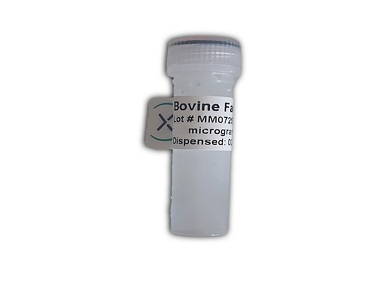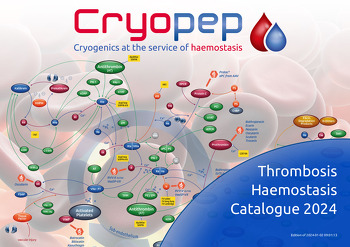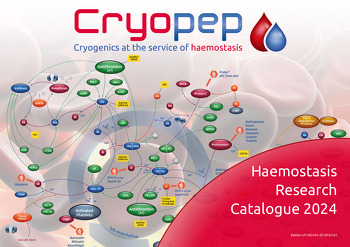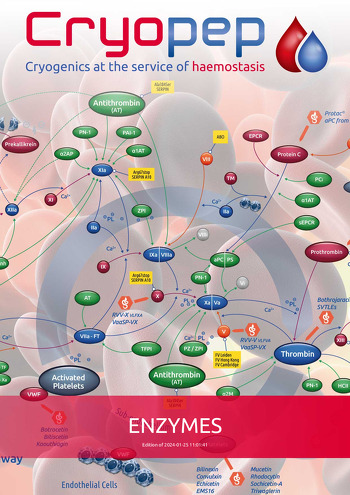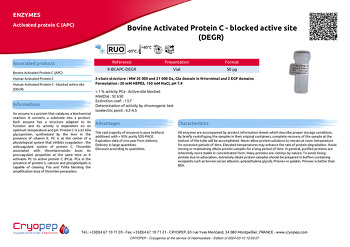An enzyme is a protein that catalyzes a biochemical reaction. It converts a substrate into a product. Each enzyme has a structure adapted to its function and its activity is dependent on an optimum temperature and pH. Protein C is a 62 kDa glycoprotein, synthesized by the liver in the presence of vitamin K. PC is at the center of a physiological system that inhibits coagulation : the anticoagulant system of protein C. Thrombin associated with thrombomodulin loses its procoagulant properties at the same time as it activates PC to active protein C (PCa). PCa in the presence of protein S, calcium and phospholipids is capable of cleaving FVa and FVIIIa blocking the amplification loop of thrombin generation.
All enzymes are accompanied by product information sheets which describe proper storage conditions. By briefly centrifuging the samples in their original containers, complete recovery of the sample at the bottom of the tube will be accomplished. Never allow protein solutions to remain at room temperature for excessive periods of time. Elevated temperatures may enhance the rate of protein degradation. Avoid storing or maintaining dilute protein samples for a long period of time. In general, purified proteins are inherently more stable in concentrated form. Many proteins are «sticky» by nature. To avoid losing protein due to adsorption, extremely dilute protein samples should be prepared in buffers containing excipients such as bovine serum albumin, poly(ethylene glycol), Prionex or gelatin. Prionex is better than BSA.
The vast majority of enzymes is pure (without additives) with > 95% purity SDS-PAGE.
Expiration date of one year from delivery.
Delivery in large quantities.
Discount according to quantities.





